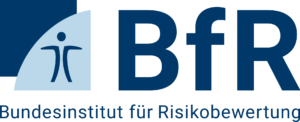The German Federal Institute for Risk Assessment
Berlin, DE
“Identify risks – Protect health” – this is the guiding principle for the work of the German Federal Institute for Risk Assessment (BfR) in the field of consumer health protection. The Institute was set up in November 2002 to strengthen consumer health protection. It is the scientific agency of the Federal Republic of Germany which is responsible for preparing expert reports and opinions on food and feed safety as well as on the safety of substances and products. In this context, the Institute plays an important role in improving consumer protection and food safety. BfR reports to the Federal Ministry of Food and Agriculture (BMEL). It enjoys independence in respect of its scientific assessments and research. Its tasks include the assessment of existing and the identification of new health risks, the drawing up of recommendations on risk reduction, and the communication of this process. The results of its work serve as the basis for scientific advice to the relevant federal ministries and other agencies, for instance the Federal Office of Consumer Protection and Food Safety (BVL) and the Federal Institute for Occupational Safety and Health (BAuA). In its assessments and recommendations BfR is not influenced by any economic, political or social interests. Risk assessment is done on the basis of internationally recognised scientific assessment criteria. Based on the risk analysis results the Institute formulates, where appropriate, management options for risk reduction. BfR has the statutory task of informing the public about potential, identified and evaluated risks which foods, substances and products may entail for consumers. The assessments are presented in a transparent and easily comprehensible manner. Whilst respecting the confidentiality of protected data, the results are readily accessible for the general public on its website. At expert hearings, scientific meetings and consumer fora the Institute enters into a dialogue with important stakeholders from politics, the sciences, associations, the business community and non-governmental organisations. BfR conducts its own research on topics which are closely related to its assessment tasks in consumer health protection and food safety.
Role in the project
BfR is involved in WP3 (Task 3.1, 3.4) and WP4 (Task 4.1, 4.2) of ENDOMIX. BfR will contribute with its expertise on in vitro models of the gastrointestinal barrier and analyse the effects of EDCs and their mixtures on the intestinal barrier and intestinal immune cells. BfR will further engage in the work on classification of chemical and mixtures regarding their immunotoxicity.
Team
Albert Braeuning

Prof. Dr. Albert Braeuning is a biochemist and toxicologist. He is head of the Unit “Effect-Based Analytics and Toxicogenomics” at the Department Food Safety of BfR since 2014, and professor of toxicology at the Charité Berlin University Hospital. His research focus is on the molecular mechanisms of toxicity of food components and contaminants and their mixtures in hepatic and intestinal systems, and on the implementation of mechanistic data and adverse outcome pathway-based approaches in regulatory toxicology. He is involved in different EU consortia (PARC; EDCMET; BoostCrop; ITN-PERFORCE3; SCENARIOS) and several national third party-funded projects. He has authored more than 180 indexed publications.

